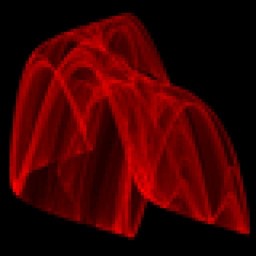What does the Bash operator <<< (i.e. triple less than sign) mean?
Solution 1
It redirects the string to stdin of the command.
Variables assigned directly before the command in this way only take effect for the command process; the shell remains untouched.
Solution 2
From man bash
Here Strings A variant of here documents, the format is:
<<<wordThe word is expanded and supplied to the command on its standard input.
The . on the IFS line is equivalent to source in bash.
Update: More from man bash (Thanks gsklee, sehe)
IFS The Internal Field Separator that is used for word splitting after expansion and to split lines into words with the read builtin command. The default value is "
<space><tab><new‐line>".
yet more from man bash
The environment for any simple command or function may be augmented temporarily by prefixing it with parameter assignments, as described above in PARAMETERS. These assignment statements affect only the environment seen by that command.
Solution 3
The reason that IFS is not being set is that bash isn't seeing that as a separate command... you need to put a line feed or a semicolon after the command in order to terminate it:
$ cat /tmp/ifs.sh
LINE="7.6.5.4"
IFS='.' read -a ARRAY <<< "$LINE"
echo "$IFS"
echo "${ARRAY[@]}"
$ bash /tmp/ifs.sh
7 6 5 4
but
$ cat /tmp/ifs.sh
LINE="7.6.5.4"
IFS='.'; read -a ARRAY <<< "$LINE"
echo "$IFS"
echo "${ARRAY[@]}"
$ bash /tmp/ifs.sh
.
7 6 5 4
I'm not sure why doing it the first way wasn't a syntax error though.
Related videos on Youtube
gsklee
Updated on June 04, 2022Comments
-
 gsklee 6 months
gsklee 6 monthsWhat does the triple-less-than-sign bash operator,
<<<, mean, as inside the following code block?LINE="7.6.5.4" IFS=. read -a ARRAY <<< "$LINE" echo "$IFS" echo "${ARRAY[@]}"Also, why does
$IFSremain to be a space, not a period?-
 mosh almost 5 yearsAnother use of this operator (instead of named pipes with mknod) when you need multiple pipes in a single | pipline: eg. echo data | command --data-on-stdin --other-data-on-fd-3 3<<<'other-data'
mosh almost 5 yearsAnother use of this operator (instead of named pipes with mknod) when you need multiple pipes in a single | pipline: eg. echo data | command --data-on-stdin --other-data-on-fd-3 3<<<'other-data'
-
-
 gsklee about 11 yearsThe
gsklee about 11 yearsThe.seems like a way to define a custom delimiter for$LINE -
 gsklee about 11 yearsHow do I modify it to use a custom multichar delimiter? Say,
gsklee about 11 yearsHow do I modify it to use a custom multichar delimiter? Say,==>? How should I quote the string? -
 Ignacio Vazquez-Abrams about 11 yearsYou can't.
Ignacio Vazquez-Abrams about 11 yearsYou can't.$IFSis always interpreted as a series of single characters. -
 Tanktalus about 11 yearsBecause the first way is how you temporarily set env vars for a single command. They automatically reset back to their previous values when that command is complete. I use this all the time to set debug flags or what have you but only temporarily.
Tanktalus about 11 yearsBecause the first way is how you temporarily set env vars for a single command. They automatically reset back to their previous values when that command is complete. I use this all the time to set debug flags or what have you but only temporarily. -
Guna over 4 yearsBut when I want to split the array using newline. Only the first item is getting added to the hostArray. But the host has 4 items.
host=$(mysql -S $socket $catalog --skip-column-names -e "select host from mysql.user); echo "Host: $host"; IFS=$'\n';read -ra hostArray <<< "$host"; echo "HostArray:$hostArray" #This prints only 1 item. But there are 4 items;What is wrong here? -
 Davos over 1 year@Guna I'm a few years too late but anyway others might wonder so...in this part
Davos over 1 year@Guna I'm a few years too late but anyway others might wonder so...in this part<<< "$host", when you reference an array like"$host"it implies the default index of zero so it's really doing"$host[0]". What you need there is"${host[@]}"

